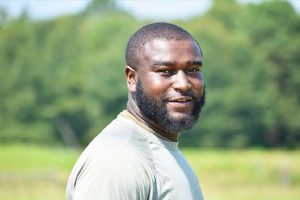In July 2020, America lost a civil rights hero, Congressman John Robert Lewis. Lewis, who rose from his family’s Alabama farm to the halls of Congress representing Georgia, was highly respected and dubbed the moral compass of the House of Representatives for the life he led — one of courage, determination, and integrity.
His legacy of fighting for civil rights is a testament to the power of assembly and organization in the name of justice and equality. Lewis is seen as an icon across all generations because he continued to fight beyond his days as a Freedom Rider, Bloody Sunday in Selma, and the March on Washington. The Congressman’s unapologetic reputation and empowering message to make “Good Trouble,” a phrase Lewis was often quoted, along with, “If you see something that is not right, not fair, you have a moral obligation to do something about it.”
Lewis’ iconic fight played out on a national scale, but the son of sharecroppers always looked for ways to improve access and equality for farmers of color and rural communities. He never forgot where he came from and the discrimination his family and so many other Black farming families endured in the Jim Crow South. Throughout Lewis’ rise as a Georgia Congressman, he maintained a connection to the farming community. For his advocacy and career of social change, Lewis was awarded the Estelle Witherspoon Lifetime Achievement Award from the Federation of Southern Cooperatives, the nation’s largest, most premier Black farming organization serving low-income farmers, landowners, and rural people in the South.
Lewis focused on voters rights, civil rights, and human rights, and he was inclusive in his fight for social change. In the 1960s, he worked closely with Cesar Chavez, founder of United Farm Workers of America (UFW), the nation’s first enduring and largest farm workers union. Five decades later, Lewis was arrested alongside UFW representatives at the U.S. Capitol, fighting to get immigration reform passed.
Congressman Lewis wasn’t alone in the fight for the disadvantaged and underrepresented in agriculture. The most recent Farm Bill of 2018 includes pivotal progress, championed by Lewis’ longtime friends in justice, fellow Georgia Congressmen Sanford Bishop and David Scott. Bishop, an appropriator on the House Agriculture Committee, rejected early Farm Bill negotiations that didn’t prioritize nutrition assistance, rural infrastructure, conservation programs, and research funding for land-grant historically black colleges and universities (HBCUs). Bishop pushed repeatedly for a more effective outreach program and investments in beginning, socially disadvantaged, and veteran farmers and ranchers.
Scott, known for his bi-partisan approach to policy development, delivered a historic commitment in the 2018 legislation, securing $80 million for agricultural scholarships to land-grant HBCUs. In an emotional speech on the House floor, Scott called an early version of the Farm Bill “racist” for not including mandatory funding for the scholarships and challenged his Republican counterparts to correct the disparity in federal financial support to land-grant HBCUs and to take timely action to replace the aging agricultural workforce. Scott a graduate of Florida A&M University, a land-grant HBCU, emphasized the low representation of minorities in agricultural sciences and industry professions.
The congressmen’s relentless, Good Trouble pursuit for equality has empowered next-generation agricultural organizations like the National Young Farmers Coalition (NYFC), which mobilizes to shift policies and remove structural barriers to the next generation of farmers and ranchers. Recently, a NYFC chapter was founded in Congressman Bishop’s district of Southwest Georgia. NYFC Advisory Board Member and Georgia native, Sedrick Rowe, founded the Southwest Georgia Chapter and shares leadership with agricultural sciences graduates from Fort Valley State University, Georgia’s land-grant HBCU.

Rowe, a first-generation farmer and one of Georgia’s few organic peanut farmers, leveraged his network of political, veteran, crop, and livestock farmers to organize as advocates and increase representation and markets in their local farming community. When asked about the impact the three Georgia congressmen have made on Rowe’s farming and advocacy decisions, Rowe described John Lewis as iconic and credited his legacy as a reason formalizing the SW Georgia Chapter was necessary when the state’s other NYFC chapters were not reaching the southwestern Georgia community.
As a land-grant HBCU graduate, Rowe views the David Scott scholarships as transformational for diversity in agricultural sciences recruitment and enrollment at institutions that have always been a service center for Black farmers and landowners. The SW Georgia Chapter president referred to his local representative, Sanford Bishop, as a friend to the chapter — someone who connects regularly and values their collaborative advocacy for the larger Southwest Georgia farming community. Rowe and the chapter’s leaders recognize the role of policy in the pursuit of progress, and “when necessary,” as the John Lewis encouraged, they elevate their concerns.
In his final letter to the nation, published on the day of his funeral, Lewis spoke directly to the youngest on the front lines of justice. He wrote, “The truth does not change, and that is why the answers worked out long ago can help you find the solutions to the challenges of our time … we must put away our willingness to profit from the exploitation of others.”
The continuous protests for social change across the country are painted with young faces of hope, determination, and progress. In those crowds are future farmers, conservationists, and agricultural scientists — on the front lines, challenging privilege, calling for equity and access, and reimagining an American agricultural system that feeds and sustains everyone regardless of their circumstances.
Bea Wilson is a diversity strategist and agricultural professional passionate about the next generation of agricultural leaders. She owns IDEATION308, a diversity consulting firm in Upper Marlboro, Maryland. Twitter: @IDEATION308


